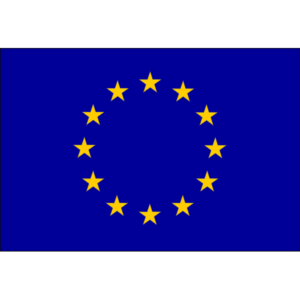Fidelity European Trust plc (LON:FEV) is the topic of conversation when Hardman & Co’s Analyst Mark Thomas caught up with DirectorsTalk for an exclusive interview.
Q1: You called your report on Fidelity European Trust Follow the Money. What is your brief summary of it?
A1: Over five years, FEV has outperformed UK markets, UK listed competition and European benchmarks. It “follows the money” using detailed research, leveraging Fidelity’s global capabilities, to identify mis-priced strong, growing dividends. Over 10 years, Fidelity’s stock selection has added ca.2% p.a. to returns. Around two thirds of portfolio company revenue is non-European. FEV invests for the long term and in quality businesses with downside protection, but it can face short-term headwinds and have above-market volatility. FEV’s assets are listed and liquid, but its shares trade at a 7% discount to NAV.
Q2: So the stock selection has added 2% to returns per annum. What type of company has it invested in to deliver such a performance?
A2: FEV’s companies have a proven track record of outperforming markets over the long term – each of FEV’s top five holdings have beaten the index over five years. FEV’s approach is bottom-up, long-term and cautious, with the focus being on dividend growth at a reasonable price (GARP). Its companies typically are larger, long-established businesses, with proven track records through multiple economic scenarios.
FEV is investing primarily in global businesses, with nearly two thirds of portfolio company revenues coming from outside Europe. They have faster-than-average European revenue growth, better-than-average profitability and, to pay for this quality, the P/E and P/B valuation ratings are also above-average. The yield on the portfolio is in line with the market (FEV is focused on dividends but invests in sustainable dividend growers – not the highest-yielding companies, where the dividend may be at risk).
Q3: And how has it identified these companies?
A3: FEV aims for steady outperformance, not shooting the lights out one year and risking a major underperformance the next. Its approach is underpinned by detailed research conducted by Fidelity’s team of 37 in Europe (the origination of new ideas flows from this analytical model/company meetings, the benefits of Fidelity’s global research, the managers’ and analysts’ networks, and external recommendations).
The manager regularly re-visits each company’s investment thesis, but turnover over the past five years has averaged just 17.8%, i.e. an implied hold period of 5.6 years. Fidelity has strong ESG characteristics, viewing this as both a social responsibility and an opportunity to create value. FEV avoids hot sectors where valuations cannot be justified/dividends may not be paid, or where they may prove unsustainable, and the portfolio risk is managed through position size, with sector exposures typically kept within 5% of the benchmark.
Q4: You touched on a really interesting point earlier, when you said two thirds of investee company revenue was non-European. Can you say some more about that?
A4: FEV aims to achieve long-term capital growth by investing predominantly in equities and their related securities of European companies – so its mandate is European companies. However, it is investing in large companies with sustainable, growing dividends, which generate their revenue globally – so Fidelity Europe has exposure to global growth, not just European growth. Putting some numbers on that: emerging markets accounted for 30% of investee company sales, North America 25%, and Europe accounted for 35%. Putting some names to those numbers, FEV’s five largest holdings are ASML, Nestlé, Roche, LVMH and L’Oréal.
Q5: And what are the risks of investing?
A5: Fidelity European Trust has seen periods of short-term underperformance, when its investment style has been out of favour – typically when the market’s preference has been for lower-quality, more cyclical stocks assets. Usually, recovery has been swift. COVID-19 remains an uncertainty. FEV may also show volatility. In FY’10-’20, the NAV average annual return was 10.8%, but it ranged from -11.5% to +24.7% (and the share price averaged 11.9%, with a range of -8.6% to +31.3%). The former range was slightly better than the benchmark, while the latter was slightly worse. European issues may affect the NAV – although, with just a third of revenue earned by portfolio companies in the region, we believe this is likely to have a greater impact on sentiment, rather than the performance of investments.



